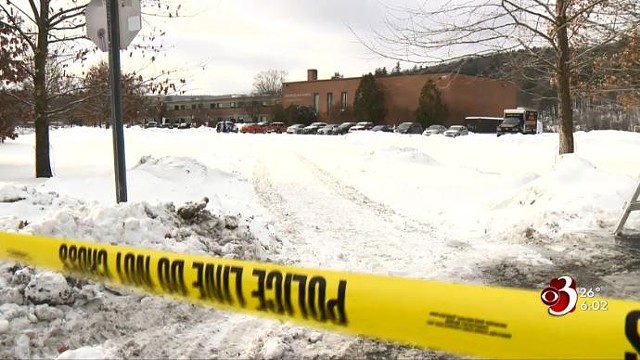
- Screenshot
- A still from WCAX's report on a police shooting at Montpelier High School in January 2018
In a significant victory for press freedom, a Vermont judge ruled in February 2018 that the state's newly enacted media shield law protected WCAX-TV from having to provide prosecutors raw footage of a police shooting.
But because the judge's decision was part of a secret investigative procedure, the ruling's very existence has gone undisclosed to the public — until now.
On Tuesday, WCAX is scheduled to argue before the Vermont Supreme Court that the judge's order ought to be unsealed. "This case presents a straightforward question," the TV station's lawyers argued in a brief filed with the court. "Are members of the public allowed to see the court decisions that interpret and apply Vermont's statutes and shape its common law?"
Washington County State's Attorney Rory Thibault, whose office sought and failed to obtain video of the shooting, thinks the answer to that question — at least in this case — is no. Though he "recognizes the value of transparency and fairness in the justice system," Thibault wrote in his own brief, "transparency must yield and defer to public safety considerations in the context of criminal investigations."
The legal battle began soon after state and local police fatally shot Nathan Giffin, a suspected bank robber, on a Montpelier High School athletic field in January 2018.
Authorities have said that Giffin threatened police and his own life during an hourlong standoff that preceded the shooting.
The next day, according to court papers, Thibault's office convened an inquest — a secret, investigative proceeding overseen by the courts — to determine whether police had acted lawfully. The state learned that WCAX had videotaped 38 minutes of the standoff, including the shooting, and subpoenaed the station for the footage. Citing the state's new media shield law, WCAX called on the court to quash the subpoena, calling it "a classic fishing expedition."
The shield law, passed by the legislature and
signed by governor Phil Scott in May 2017, limited the courts' ability to compel reporters to testify or turn over reporting material. A coalition of journalists and news outlets in the state, led by the Vermont Press Association and including
Seven Days,
argued at the time that such a law was necessary to protect reporters from having to give up confidential sources or become deputized law enforcement investigators.
A Vermont Superior Court judge evidently agreed that the shield law protected WCAX from having to turn over footage of the shooting and quashed the subpoena in February 2018, but the ruling remained under wraps as the inquest continued. That July, WCAX moved to unseal the decision, arguing that it provided critical new information to the press and the public about how the courts were interpreting the shield law.
Judge Howard VanBenthuysen sided against the station, writing in October 2018 that, "since inquests are confidential" under statute and case law, so too are "any written rulings the court made in its role as the superintendent" of an inquest.
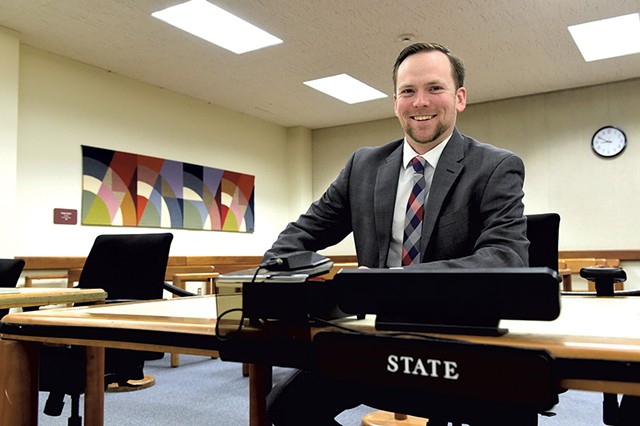
- File: Jeb Wallace-Brodeur
- Rory Thibault
The question before the Supreme Court on Tuesday is somewhat technical: whether the secrecy of an inquest proceeding is governed by rules pertaining to the courts, as WCAX argues, or rules pertaining to the executive branch, as Thibault's office believes and VanBenthuysen concluded.
The Supreme Court's decision, however, could have a broader impact on the relationship between Vermont reporters and the legal system.
In a statement to
Seven Days, WCAX general manager Jay Barton said the lower court ruling "does nothing but support the rationale" for the shield law and "establishes precedent for its application in state case law."
"WCAX will always work to support the freedom of the press not just for ourselves but all true journalists, because we believe the erosion of the free press anywhere is a threat to citizens everywhere," Barton continued.
In an interview with
Seven Days, Thibault said that the real question was whether the state could continue to make use of a key investigative tool. "Ultimately, the state has a significant interest in ensuring that inquest proceedings maintain their confidentiality," he said, so that they remain thorough, impartial and fair.
Disclosures: WCAX and Seven Days
are media partners. As a board member of the Vermont Press Association in 2017, Paul Heintz lobbied for the enactment of the media shield law.
Corrected 5/14/19: An earlier version of this story misspelled Nathan Giffin's name.











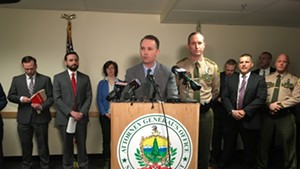
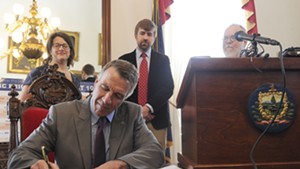
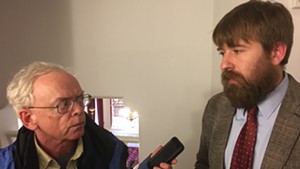




Comments (2)
Showing 1-2 of 2
Comments are closed.
From 2014-2020, Seven Days allowed readers to comment on all stories posted on our website. While we've appreciated the suggestions and insights, right now Seven Days is prioritizing our core mission — producing high-quality, responsible local journalism — over moderating online debates between readers.
To criticize, correct or praise our reporting, please send us a letter to the editor or send us a tip. We’ll check it out and report the results.
Online comments may return when we have better tech tools for managing them. Thanks for reading.